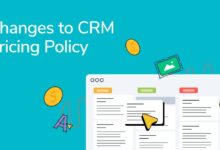Salesforce CRM Cost: 7 Shocking Truths You Must Know in 2024
Thinking about adopting Salesforce but unsure about the real Salesforce CRM cost? You’re not alone. Many businesses get hit with unexpected fees, hidden charges, and complex pricing tiers. Let’s break down exactly what you’ll pay—and how to save.
Understanding the Core Salesforce CRM Cost Structure

Salesforce doesn’t use a one-size-fits-all pricing model. Instead, it offers a tiered system based on features, user count, and functionality. The base price might look affordable, but once you factor in add-ons, automation, and integrations, costs can skyrocket. That’s why understanding the foundational pricing model is crucial before making any commitment.
Subscription Tiers and Their Base Prices
Salesforce offers several main editions, each tailored to different business sizes and needs. The most commonly used include Essentials, Professional, Enterprise, and Unlimited. Each tier comes with a monthly per-user fee, which forms the backbone of the Salesforce CRM cost.
- Essentials: Priced at $25/user/month, this is the entry-level option ideal for small businesses with basic CRM needs.
- Professional: At $80/user/month, it adds workflow automation, custom reporting, and API access—ideal for growing teams.
- Enterprise: Costing $165/user/month, this tier offers full customization, advanced analytics, and SLAs.
- Unlimited: Priced at $360/user/month, it includes 24/7 support, sandbox environments, and premium features for large enterprises.
These base prices are just the starting point. Additional features, user roles, and third-party integrations can significantly increase your total cost.
Per-User vs. Per-Feature Pricing
While Salesforce markets its pricing as “per user, per month,” the reality is more nuanced. Some advanced features—like Einstein Analytics, Marketing Cloud, or Service Cloud—are sold as separate add-ons, not included in the base subscription. This means you could pay $165/user/month for Enterprise edition and still need to budget extra for AI tools or customer service modules.
For example, Einstein Analytics starts at $75/user/month, and Marketing Cloud can cost over $4,000/month even before adding users. This per-feature pricing model can make Salesforce CRM cost unpredictable unless you plan meticulously.
“Salesforce’s pricing is transparent on the surface, but the real cost emerges when you start adding the tools your business actually needs.” — CRM Analyst, Gartner
Hidden Costs That Inflate Salesforce CRM Cost
The advertised price is rarely the final price. Many companies underestimate the total cost of ownership (TCO) because they overlook implementation, training, and ongoing maintenance. These hidden costs can double—or even triple—your initial budget.
Implementation and Setup Fees
Implementing Salesforce isn’t as simple as signing up and logging in. Most businesses need professional consultants to configure workflows, migrate data, and integrate with existing systems. Hiring a Salesforce partner or consultant can cost anywhere from $10,000 to $100,000+, depending on complexity.
For example, a mid-sized company migrating from HubSpot to Salesforce might spend $25,000 on setup alone. This includes data cleansing, user role configuration, and automation setup. These are one-time costs, but they’re essential and often overlooked in early budgeting.
Customization and Development Expenses
Salesforce is highly customizable, but that flexibility comes at a price. Building custom apps, workflows, or dashboards often requires developers fluent in Apex, Visualforce, or Lightning. If you don’t have in-house developers, you’ll need to hire external help.
- Custom app development: $15,000–$50,000
- Workflow automation: $5,000–$20,000
- Integration with ERP or accounting software: $10,000+
These costs are not included in the monthly subscription and can significantly impact your long-term Salesforce CRM cost.
Salesforce CRM cost – Salesforce CRM cost menjadi aspek penting yang dibahas di sini.
Ongoing Maintenance and Upgrades
Once Salesforce is live, it’s not maintenance-free. Regular updates, user management, security patches, and performance monitoring require ongoing effort. Many companies assign a dedicated Salesforce admin, whose salary (or contractor fees) becomes part of the CRM’s operational cost.
Additionally, Salesforce releases three major updates per year. While these bring new features, they can also break custom code or integrations, requiring troubleshooting and reconfiguration—another hidden cost.
How User Count Impacts Salesforce CRM Cost
The number of users is one of the biggest drivers of Salesforce CRM cost. Since pricing is per user, adding team members directly increases your monthly bill. But it’s not just about quantity—user roles and permissions also affect pricing.
Different User Licenses and Their Costs
Salesforce offers various license types beyond the main editions. These include:
- Lightning Platform Starter: $25/user/month – for basic app users.
- Lightning Platform Plus: $50/user/month – includes API access and more customization.
- Service Cloud User: $100/user/month – tailored for support teams with case management.
- Marketing Cloud User: Priced separately, often $50–$150/user/month depending on features.
Choosing the right license for each employee is key to controlling costs. Over-licensing (giving users more access than needed) is a common and expensive mistake.
Strategies to Reduce User-Based Expenses
To minimize user-related costs, consider these strategies:
- Use Chatter Free licenses: For employees who only need to view records or collaborate, Chatter Free is a no-cost option.
- Implement role-based access: Assign the lowest license tier that meets each user’s needs.
- Consolidate roles: Train super-users to handle complex tasks, reducing the need for multiple high-tier licenses.
One company reduced its monthly bill by 30% simply by auditing user roles and downgrading 15 unnecessary Enterprise licenses to Professional.
Add-Ons and Modules That Increase Salesforce CRM Cost
Salesforce’s core CRM is just the beginning. To unlock its full potential, businesses often purchase additional clouds and modules—each with its own price tag. These add-ons can transform your CRM but also dramatically increase your Salesforce CRM cost.
Sales Cloud, Service Cloud, and Marketing Cloud Pricing
These are Salesforce’s flagship modules, each designed for a specific function:
- Sales Cloud: Included in most editions, but advanced features like Einstein Lead Scoring cost extra ($50/user/month).
- Service Cloud: Starts at $75/user/month for the basic version, with Premium support at $150/user/month.
- Marketing Cloud: One of the most expensive add-ons, starting at $4,000/month for basic email marketing, with advanced plans exceeding $25,000/month.
For a full customer experience platform, you might end up paying for all three—quickly pushing your total cost into six figures annually.
Einstein AI and Analytics Tools
Salesforce Einstein brings AI-powered insights to sales, service, and marketing. While powerful, these tools come at a premium:
Salesforce CRM cost – Salesforce CRM cost menjadi aspek penting yang dibahas di sini.
- Einstein Analytics: $75/user/month
- Einstein Discovery: $125/user/month
- Einstein Bots: $300/month per bot + $25/user/month
AI features are increasingly essential for competitive advantage, but they add significant cost. A company with 50 users using Einstein Analytics would pay an extra $4,500/month—on top of their base subscription.
“AI is the future of CRM, but it’s not cheap. Businesses must weigh the ROI of Einstein tools against their budget.” — TechCrunch, 2023
Integration and Third-Party Tool Costs
Salesforce rarely works in isolation. It needs to connect with email platforms, accounting software, e-commerce systems, and more. While some integrations are free, many require paid connectors or middleware platforms.
Native vs. Third-Party Integrations
Salesforce offers native integrations with tools like Gmail, Outlook, and Slack. These are usually free or low-cost. However, connecting to ERP systems like SAP or NetSuite often requires third-party middleware like MuleSoft (which Salesforce owns) or Boomi.
MuleSoft, for example, starts at $5,000/month and can go up to $50,000/month for enterprise plans. This is a major cost driver that many overlook when calculating Salesforce CRM cost.
Middleware and API Usage Fees
High-volume data syncing or real-time integrations can consume API calls. Salesforce imposes API call limits based on your edition:
- Professional: 1,000 API calls per 24 hours
- Enterprise: 15,000 calls
- Unlimited: 150,000 calls
Exceeding these limits requires purchasing additional API packs, which cost extra. For data-heavy operations, this can add $1,000–$5,000/month in unexpected fees.
Training, Support, and Admin Costs
Even the most powerful CRM is useless if your team doesn’t know how to use it. Training and ongoing support are critical—but often under-budgeted—components of Salesforce CRM cost.
Employee Training Programs
Effective Salesforce adoption requires structured training. Options include:
- Salesforce Trailhead: Free online learning platform with gamified courses.
- Live instructor-led training: $1,500–$3,000 per session.
- Custom training programs: $10,000+ for company-specific curricula.
One study found that companies that invest in training see 3x higher user adoption and 2x ROI on their CRM investment.
Dedicated Admin and Support Staff
Most mid-to-large companies assign at least one full-time Salesforce administrator. The average salary for a Salesforce Admin in the U.S. is $85,000/year. This is an ongoing operational cost that must be factored into your total Salesforce CRM cost.
Alternatively, some companies outsource admin work to managed service providers, paying $1,500–$5,000/month for remote support.
Salesforce CRM cost – Salesforce CRM cost menjadi aspek penting yang dibahas di sini.
How to Calculate Your Total Salesforce CRM Cost
To avoid budget overruns, you need a comprehensive cost model. This should include not just subscription fees, but all direct and indirect expenses over a 3–5 year period.
Building a 3-Year Total Cost of Ownership (TCO) Model
A complete TCO model includes:
- Year 1: Setup, implementation, training, and first-year subscriptions
- Year 2–3: Renewals, maintenance, upgrades, and potential add-ons
Example: A 50-user company on Enterprise edition:
- Subscriptions: 50 users × $165 × 12 = $99,000/year
- Implementation: $30,000 (one-time)
- Training: $15,000 (one-time)
- Admin salary: $85,000/year
- Add-ons (Einstein, Service Cloud): $50,000/year
- Total Year 1: $279,000
- Total Year 2–3: ~$234,000/year
Over three years, this totals nearly $750,000—far beyond the base subscription cost.
Cost-Saving Tips and Negotiation Strategies
You don’t have to pay full price. Salesforce is often willing to negotiate, especially for long-term contracts. Here’s how to save:
- Negotiate multi-year contracts: Can reduce annual costs by 10–20%.
- Bundle products: Get discounts by purchasing multiple clouds together.
- Start small and scale: Begin with a lower edition and upgrade as needed.
- Audit user licenses annually: Remove inactive users and downgrade over-licensed ones.
One company saved $120,000 over three years by negotiating a four-year Enterprise contract with a 15% discount and bundling Service Cloud.
Alternatives to Salesforce and Cost Comparisons
Salesforce is powerful, but it’s not the only CRM on the market. For cost-conscious businesses, alternatives may offer better value.
Top Salesforce Competitors by Price
Here’s how Salesforce compares to key competitors:
- HubSpot CRM: Free core CRM; paid plans start at $45/month (billed annually). Much simpler and cheaper for small teams.
- Zoho CRM: Starts at $14/user/month. Offers robust features at a fraction of Salesforce’s cost.
- Microsoft Dynamics 365: Starts at $65/user/month. Integrates seamlessly with Office 365, making it ideal for Microsoft-centric organizations.
- Pipedrive: $14.90/user/month. Focused on sales pipeline management, great for SMBs.
While these lack Salesforce’s depth, they can be more than sufficient for many businesses—and far more affordable.
When to Choose Salesforce vs. a Cheaper Alternative
Salesforce makes sense if you:
- Have complex sales or service processes
- Need deep customization and automation
- Plan to scale globally
- Require AI and advanced analytics
But if you’re a small business with straightforward needs, a cheaper CRM like Zoho or HubSpot might deliver better ROI. One survey found that 42% of companies using Salesforce underutilize over 60% of its features—meaning they’re overpaying.
Salesforce CRM cost – Salesforce CRM cost menjadi aspek penting yang dibahas di sini.
What is the starting price for Salesforce CRM?
The starting price for Salesforce CRM is $25 per user per month for the Essentials edition. However, most businesses end up needing the Professional or Enterprise editions, which start at $80 and $165 per user per month, respectively.
Are there hidden costs with Salesforce?
Yes. Common hidden costs include implementation fees ($10,000–$100,000+), customization, third-party integrations (like MuleSoft), training, and ongoing admin salaries. These can double your total cost.
Can you negotiate Salesforce pricing?
Yes. Salesforce often offers discounts for multi-year contracts, bundled products, and large user counts. Working with a Salesforce partner can also help secure better deals.
How much does Salesforce Service Cloud cost?
Salesforce Service Cloud starts at $75 per user per month for the basic edition, with Premium at $150 per user per month. Additional features like Einstein Bots cost extra.
Is Salesforce worth the cost?
For large or complex organizations, yes. Salesforce offers unmatched scalability, customization, and integration capabilities. For small businesses, however, the cost may outweigh the benefits unless you fully utilize its advanced features.
Understanding the true Salesforce CRM cost goes far beyond the monthly subscription. It includes implementation, customization, add-ons, training, and ongoing admin work. While Salesforce is a powerful platform, its total cost can easily exceed six figures annually for mid-sized companies. The key is to plan thoroughly, negotiate wisely, and only pay for what you truly need. By building a realistic TCO model and exploring alternatives, you can make an informed decision that aligns with your budget and business goals.
Salesforce CRM cost – Salesforce CRM cost menjadi aspek penting yang dibahas di sini.
Further Reading:


